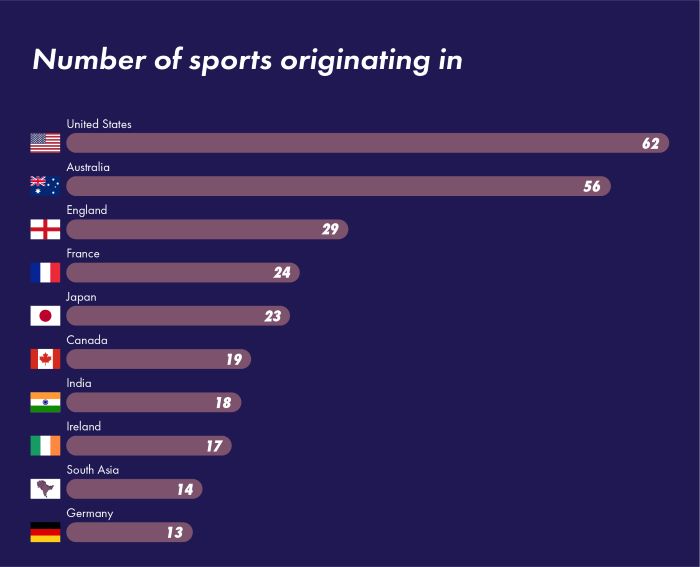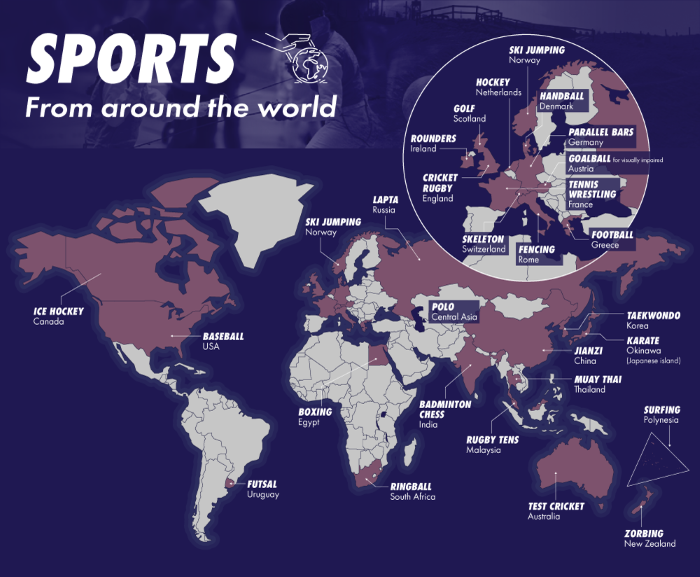Tennis – France
Tennis may be most synonymous with the UK thanks to the oldest tennis tournament in the world – Wimbledon – but tennis actually originated across the channel in France .
Developed from a 12th century French handball game called Paume (palm) where the ball was hit with a hand – and later a leather glove – it eventually evolved to become Jeu de Paume which means game of the palm.
Over the years, both the tennis racquets and balls underwent a number of modifications. The balls, for example, were made from wood initially, but were changed to various other materials that would enable them to bounce. Thanks to monks from all over Europe who loved the game, tennis grew in popularity and continued to evolve.
The most popular historic player of tennis, King Louis X, didn’t enjoy playing outside, so was the first person to construct inside courts in the 13th century. However, it wasn’t until many years later that tennis got its name. Between the 16th and 18th centuries, Jeu de Paume was well loved and played regularly by kings and nobleman, and the French players would begin the palm game by shouting the word ‘tenez’, meaning play. From there, the game soon came to be called real tennis or royal.
During the 16th century – in 1583 to be precise – the first tennis racket in the history of the game was invented in Italy, and tennis as we know it today started to take shape.
On your next trip to
Paris, why not visit the Jeu de Paume museum? This magnificent building, located within the Louvres gardens of Tuileries, was built under Napoléon III in 1861 to welcome Palm game courts. It was transformed into a contemporary art museum, which is easily accessible from the
Pullman Paris Tour Eiffel.




